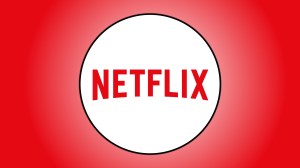Earlier this week, reports emerged that Brian K. Vaughan and Fiona Staples’s Saga #12 had been “banned” by Apple and would not appear in the iOS app for ComiXology. Since many users primarily or only use ComiXology on their iPad or iPhone, the simple decision not to run the product in the mobile app was referred to as a “ban” since, even though the terminology was incorrect, that was the effect it would have on many customers. Plus, things like “ban” and “censorship” catch readers’ attention and get the public on your side quickly.Series writer Vaughan reported that the book had been removed due to a depiction of gay sex, and questioned the choice considering that explicit heterosexual and asexual content had been allowed in the book in the past. He, the comics press and fans all exploded in defense of the best-selling, award-winning series, with allegations of censorship and homophobia being leveled against Apple for their choice.The next day, however, it was revealed that Apple had no part in the decision; that it was, in fact, ComiXology who had elected not to make the comic available through the iOS (and, for that matter, Android) mobile apps and that Apple, probably tired of a day’s worth of constant abuse, reached out to the online retailer and the issue was soon thereafter made available on the apps. Other previously “banned” titles, such as Image’s Sex and Dynamite’s The Boys: Herogasm, have appeared on the iOS app since, as well.And, as if by magic, the discussion seems to have stopped–but there are still important issues which have been ignored.A mea culpa, to start: ComicBook.com was one of the sites to report on Vaughan’s initial report at face value. Experience with similar situations in the past suggested to us that a response from Apple would not be forthcoming, and so we ran the story before all of the facts were in. We apologize, and we’ll do better in the future.The first and most important point, which has been widely discussed, is that ComiXology was acting in accordance with their own internal guidelines regarding the availability of what they deemed explicit content. In doing so, they apparently believed themselves to be acting in accordance with Apple’s guidelines as well which, given the nature of ComiXology’s business, were probably hugely influential in shaping their own content guidelines, although that’s just a guess. The question of whether either Apple or ComiXology having such guidelines is “good for comics” is one that’s a valid matter of debate–“Cape comics just escaped the Comics Code — there’s no reason to volunteer yourself to be controlled again,” wrote David Brothers–but this particular comic does not, in hindsight, appear to have been singled out for abuse (although uneven enforcement of those rules remains arguably one of the key things that led to the whole misunderstanding).Whether ComiXology miscommunicated to Image, Image miscommunicated to Vaughan or Vaughan misunderstood their message before he communicated to the fans is unclear (although it seems likely, given the way Image got immediately behind Vaughan’s version of events, that they were under the same impression that he was), but the fact that ComiXology became so involved with the Saga saga muddies some ethical waters.Vaughan, Image and ComiXology all aggressively promoted the fact that the comic might not be available via the mobile apps, but could still be purchased at ComiXology’s website and then synced to your account. Then, it seems, everybody wins. ComiXology and the creators avoid the Apple surcharge on the transaction, and fans get their comic. Certainly that takes the sting out of the “ban” and removes the concept of outright censorship from the equation (after all, if you can read it on your iPad, even though they won’t sell it to you, that’s pretty limited “censorship”), and keeps more of the revenue from the controversial issue in the comics industry.The fact that ComiXology, then, was complicit to some extent in capitalizing on the notion–one they knew to be false–that Apple was to blame for the comic’s removal from the App store is a bit on the questionable side. Even if they went into the situation with the best intentions (and there’s no clear indication they didn’t), it doesn’t look good that the controversy they played a role in manufacturing could incidentally benefit them financially.The other element of this–and one that I haven’t yet seen discussed–is what Google told me when I talked to them about this issue on Wednesday: that they don’t approve or decline individual products offered by developers in the app store. More than that, though, they said that this was essentially because they trusted the judgment of their partners in the Google Play store and that if a particular app was consistently a problem, they would simply remove that app, not the specific offending content. Apple did not respond to an inquiry as to whether they police their apps the same way, but it doesn’t seem farfetched.That would mean two things for ComiXology: First, that many of the previous “Apple censored [Insert Title Here]” stories were similarly ComiXology protecting its interests, with the blame falling on Apple; and second, that the interests ComiXology may be protecting include its continued existence in the app stores in the first place.That’s certainly an understandable position for them to take, considering that the moment Comics by ComiXology stopped being available on iOS or Android because of too many complaints about Sex and Saga, DC and Marvel would be forced to reconsider their digital comics strategy. It’s also important because it gives ComiXology’s decision context and also helps bolster their “blame the marketplace, not the app” approach.Arguably the most important aspect of this story–and the only one that actually deals with “censorship,” is one that’s been largely ignored. On Tuesday and early Wednesday, a number of retailers reported that they would not be carrying the issue, citing concerns that they might face prosecution for obscenity if they did.The Comic Book Legal Defense Fund responded with an explanation as to why the comic in question is not legally obscene, but not actually being obscene is not a defense against being prosecuted for obscenity, particularly as some community members still consider comics to be a “kids’ medium,” and assume that anything on the shelves at their local comic shop ought to be something they can give a ten-year-old. Those who know the comics industry know this not to be the case, but it’s an impression that persists in some corners.Here’s the kicker, though: Saga has (as Vaughan rightly noted in his first comments on this subject) always featured adult content, but because it’s clearly a mature readers book and because it’s widely respected as high art, it has never been a subject of scrutiny and concern on this scale before. This controversy, even if it was blown out of proportion, has shone a spotlight on Saga and put retailers in a difficult position in terms of carrying and merchandising the book, from their point of view. And in the same way that ComiXology, a retailer at heart, was willing to lose a few bucks in the App Store by electing not to make the comic available in order to insulate itself from what it perceived as larger potential consequences, retailers may feel obliged to hedge their bets with Saga, at least until they’re sure the controversy is over and there won’t be some parents’ group showing up at their door. It’s in that way that these kinds of stories have a practical life that goes on longer than the short time they’re sexy for news sites, and can affect the comic and the publisher for months to come.
Why The Saga Controversy Is Still Important
Earlier this week, reports emerged that Brian K. Vaughan and Fiona Staples’s Saga #12 had been […]










